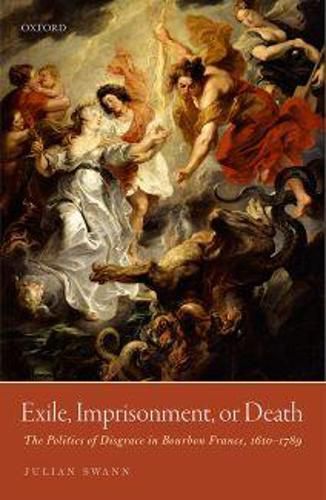Readings Newsletter
Become a Readings Member to make your shopping experience even easier.
Sign in or sign up for free!
You’re not far away from qualifying for FREE standard shipping within Australia
You’ve qualified for FREE standard shipping within Australia
The cart is loading…






On the accession of Louis XIII in 1610 following the assassination of his father, the Bourbon dynasty stood on unstable foundations. For all of Henri IV’s undoubted achievements, he had left his son a realm that was still prey to the ambitions of an aristocracy that possessed independent military force and was prepared to resort to violence and vendetta in order to defend its interests and honour. To establish his personal authority, Louis XIII was forced to resort to conspiracy and murder, and even then his authority was constantly challenged. Yet a little over a century later, as the reign of Louis XIV drew to a close, such disobedience was impossible. Instead, a simple royal command expressing the sovereign’s disgrace was sufficient to compel the most powerful men and women in the kingdom to submit to imprisonment or internal exile without a trial or an opportunity to justify their conduct, abandoning their normal lives, leaving families, careers, offices, and possessions behind in obedience to their sovereign. To explain that transformation, this volume examines the development of this new ‘politics of disgrace’, why it emerged, how it was conceptualised, the conventions that governed its use, and reactions to it, not only from the perspective of the monarch and his noble subjects, but also the great corporations of the realm and the wider public. Although that new model of disgrace proved remarkably successful, influencing the ideas and actions of the dominant social elites, it was nevertheless contested, and the critique of disgrace connects to the second aim of this work, which is to use shifting attitudes to the practice as a means of investigating the nature of Ancien Regime political culture and some of the dramatic and profound changes it experienced in the years separating Louis XIII’s dramatic seizure of power from the French Revolution.
$9.00 standard shipping within Australia
FREE standard shipping within Australia for orders over $100.00
Express & International shipping calculated at checkout
On the accession of Louis XIII in 1610 following the assassination of his father, the Bourbon dynasty stood on unstable foundations. For all of Henri IV’s undoubted achievements, he had left his son a realm that was still prey to the ambitions of an aristocracy that possessed independent military force and was prepared to resort to violence and vendetta in order to defend its interests and honour. To establish his personal authority, Louis XIII was forced to resort to conspiracy and murder, and even then his authority was constantly challenged. Yet a little over a century later, as the reign of Louis XIV drew to a close, such disobedience was impossible. Instead, a simple royal command expressing the sovereign’s disgrace was sufficient to compel the most powerful men and women in the kingdom to submit to imprisonment or internal exile without a trial or an opportunity to justify their conduct, abandoning their normal lives, leaving families, careers, offices, and possessions behind in obedience to their sovereign. To explain that transformation, this volume examines the development of this new ‘politics of disgrace’, why it emerged, how it was conceptualised, the conventions that governed its use, and reactions to it, not only from the perspective of the monarch and his noble subjects, but also the great corporations of the realm and the wider public. Although that new model of disgrace proved remarkably successful, influencing the ideas and actions of the dominant social elites, it was nevertheless contested, and the critique of disgrace connects to the second aim of this work, which is to use shifting attitudes to the practice as a means of investigating the nature of Ancien Regime political culture and some of the dramatic and profound changes it experienced in the years separating Louis XIII’s dramatic seizure of power from the French Revolution.